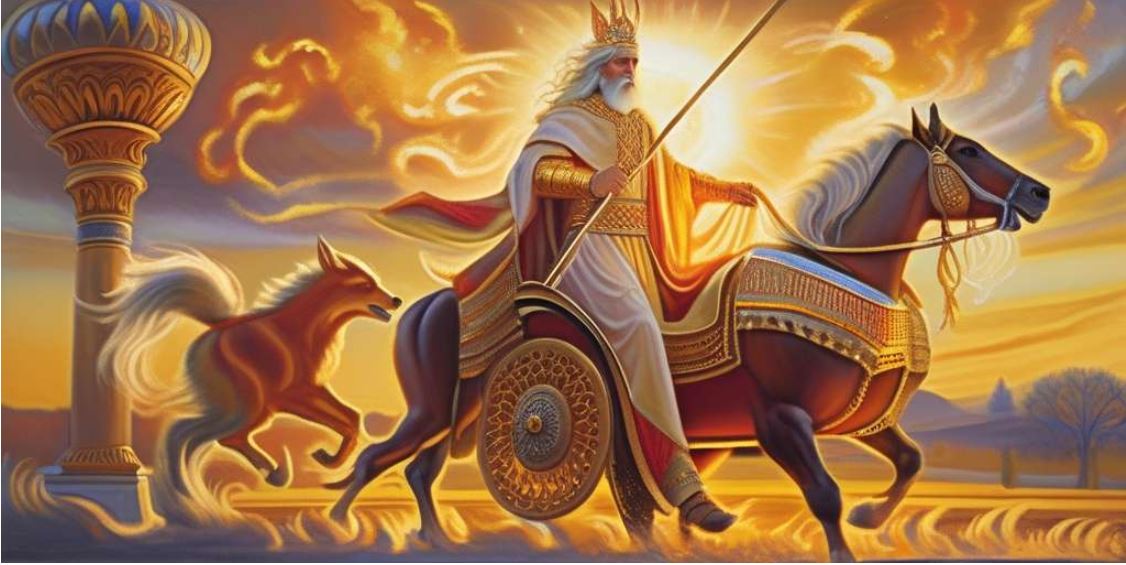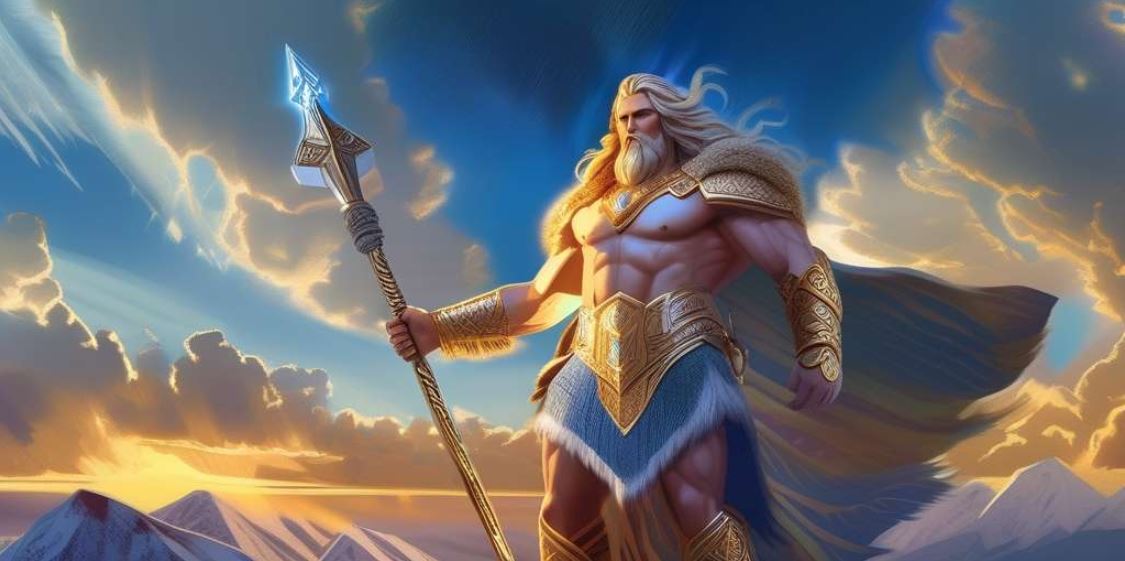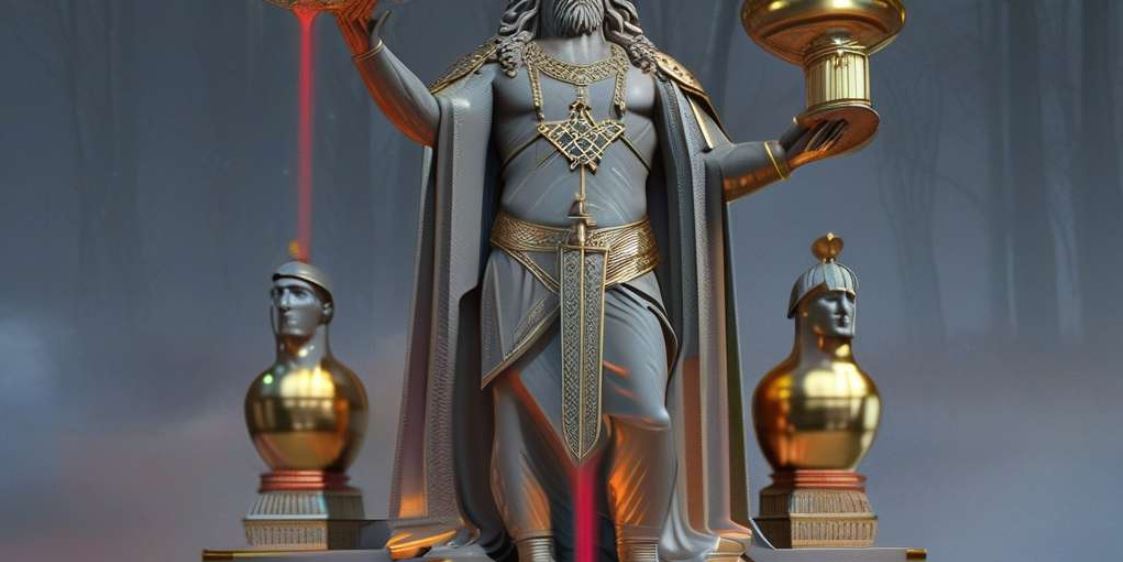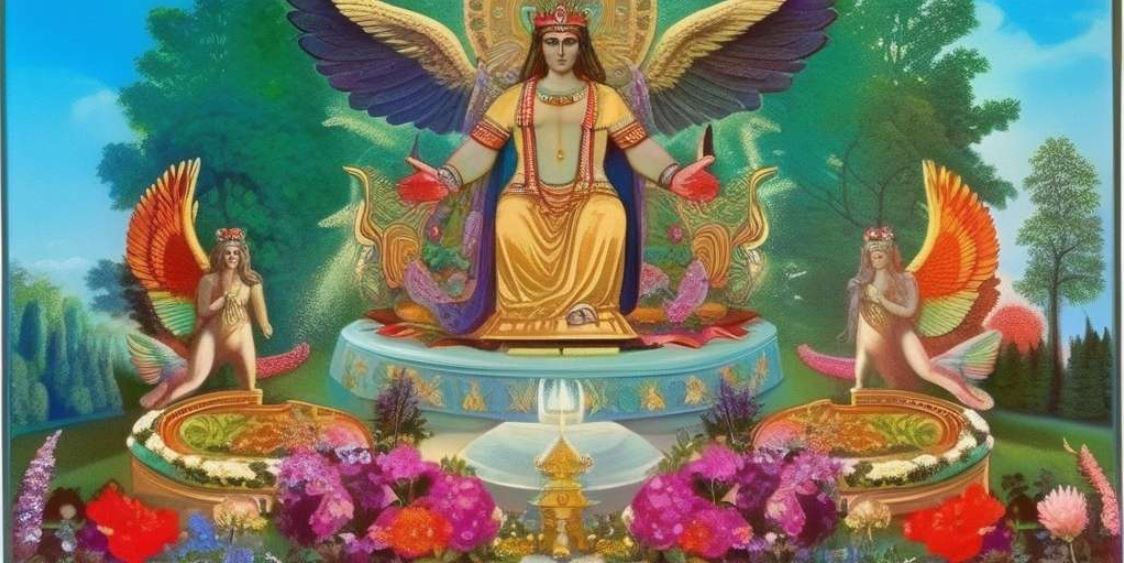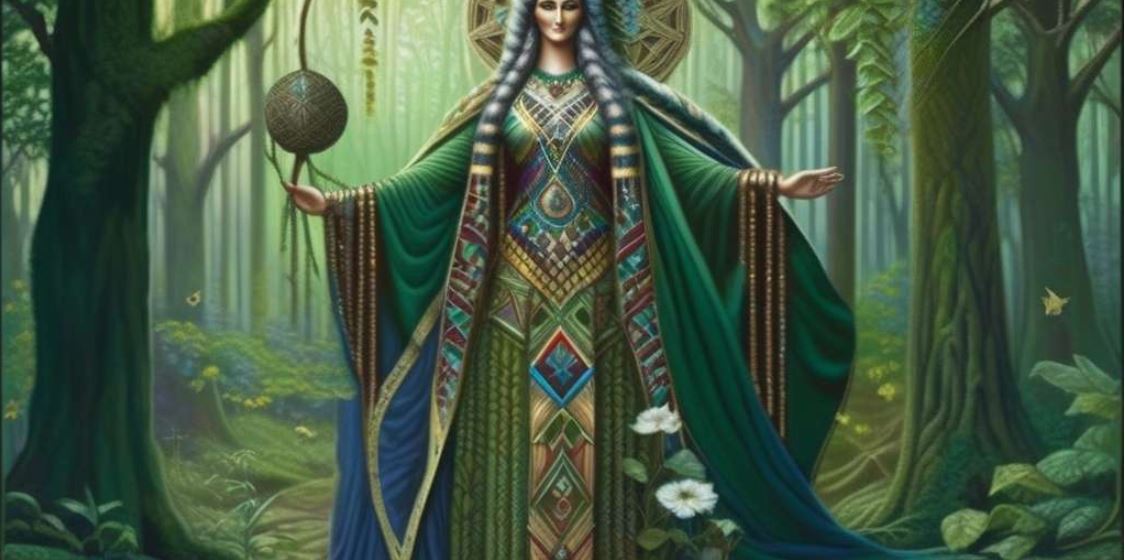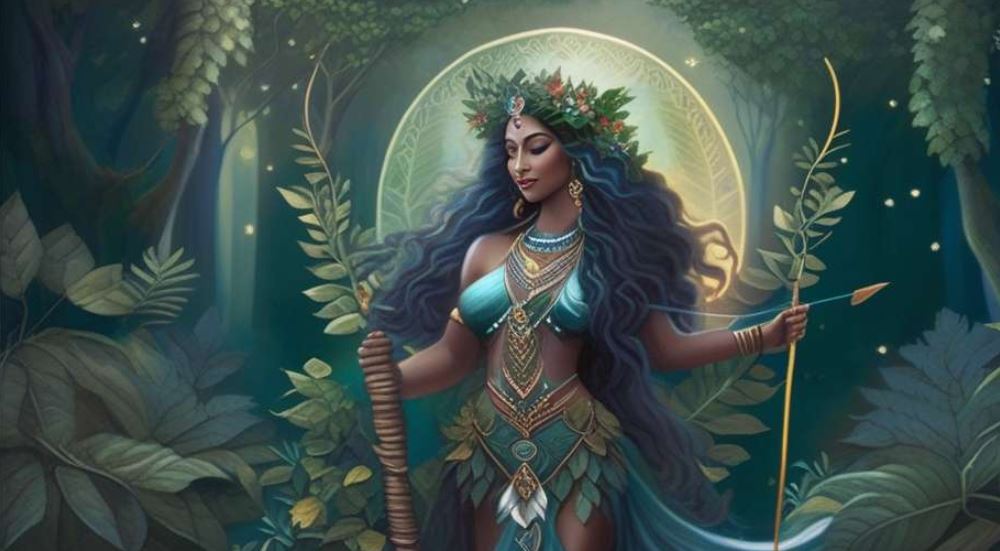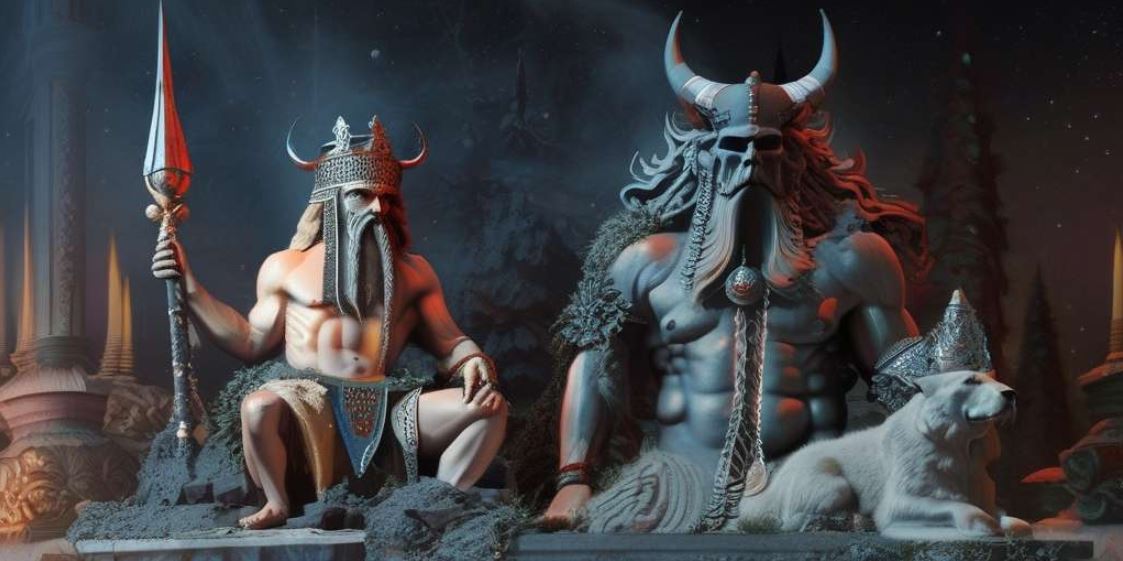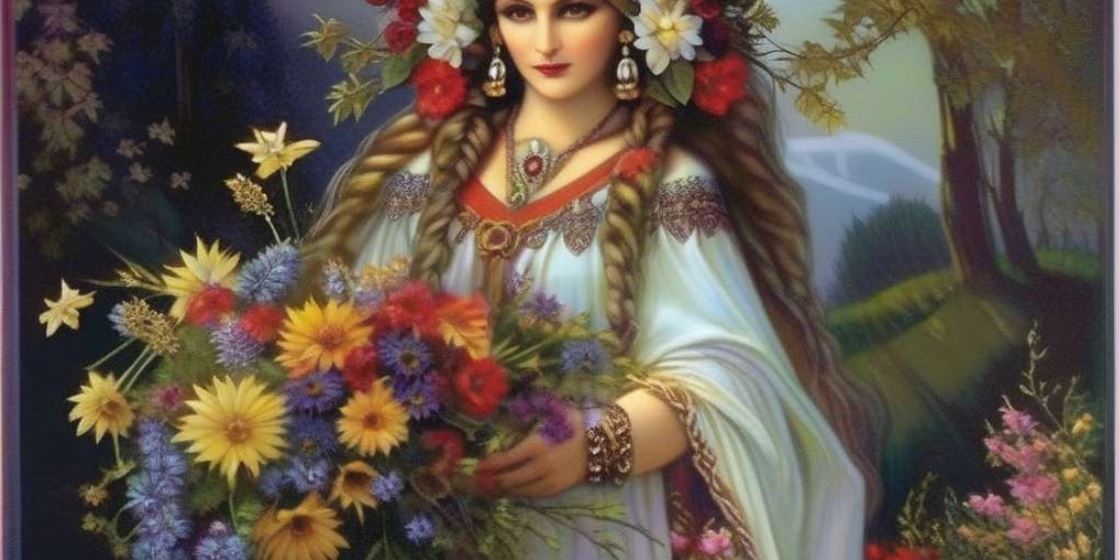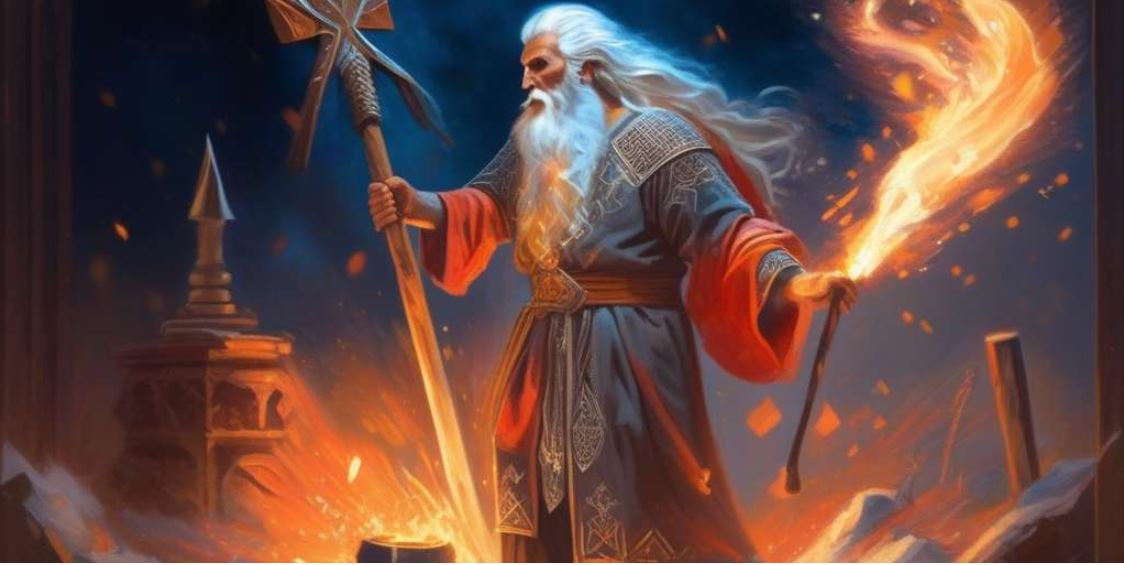Dazhbog: Exploring the Powerful Slavic Sun God in Ancient Slavic Mythology
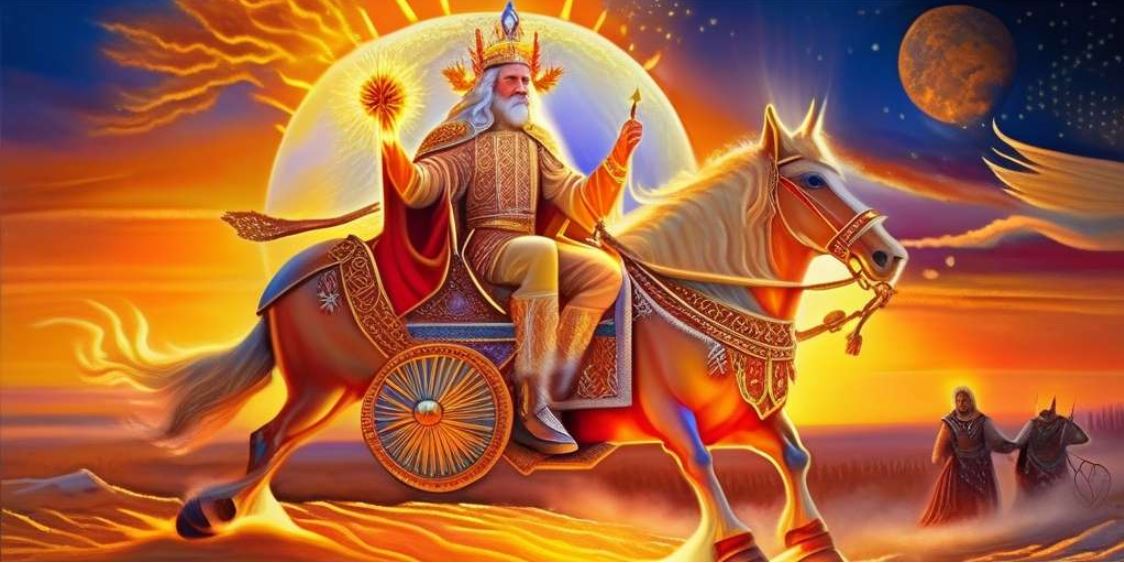
Dazhbog, the prominent solar deity of Slavic mythology, holds great significance in the ancient Slavic beliefs. Known as the god of the sun, happiness, destiny, and justice, Dazhbog’s name translates to “god’s gift” in literal translation.
He is believed to be the son of Svarog, the god of fire and forge, and is associated with Greek god Helios. Referenced in medieval manuscripts like the Primary Chronicle and the Hypatian Codex, Dazhbog’s reign witnessed the celestial descent of the blacksmith’s tongs and the forging of weapons.
His presence is also notable in the Eastern Slavic epic poem, “The Lay of Igor’s Campaign.” With a golden chariot pulled by fiery horses, Dazhbog’s appearance can transform from a young and strong man to a swollen red-faced elder.
He is linked to the Zorya, the morning and evening auroras who open and close the gates of Dazhbog’s palace. Wolves hold a special connection to him, and the white wolf is considered his sacred symbol.
However, the exact relationship between Dazhbog and other Slavic gods like Khors and Svarog remains uncertain, and the precise role of Dazhbog in pre-Christian Slavic mythology is a topic of debate among experts.
The Origins of Dazhbog: Exploring the Slavic Solar Deity
Welcome to the fascinating realm of Dazhbog, a prominent figure in Slavic mythology, known as the solar deity. Delve into the origins of this enigmatic character and uncover the significance attached to Dazhbog in the rich tapestry of Slavic beliefs.
The Significance of Dazhbog in Slavic Mythology
Dazhbog holds a significant position in Slavic mythological lore, revered as the god of the sun, happiness, destiny, and justice. As we explore the depths of his story, we discover the profound impact he had on the spiritual and cultural practices of ancient Slavic tribes.
Tracing Dazhbog’s Name and Symbolism
The name “Dazhbog,” with its literal translation of “dar dios” or “gift of God,” reflects the importance given to this deity among all Slavic tribes. We unravel the layers of symbolism associated with Dazhbog, which may provide insights into his divine nature and the qualities he personified.
Dazhbog’s Connection to Svarog: The God of Fire and Forge
Fertility and Masculinity: Dazhbog’s Associated Powers
Linked to the vibrant forces of nature, Dazhbog represented fertility and masculine energy in Slavic beliefs.
His association with the cycles of life and the continuity of generations contributed to his revered status as a deity who blessed marriages, childbirth, and agricultural endeavors. The Slavic people invoked his divine intervention to ensure the growth of crops, the well-being of livestock, and the perpetuation of their lineage.
Dazhbog’s masculine powers were revered for their ability to bring strength, protection, and vitality to individuals and communities.
In conclusion, Dazhbog played a crucial role in Slavic culture and beliefs as a deity of immense significance.
The worship and adoration directed towards him, along with his attribution as the god of the sun, happiness, fate, justice, fertility, and masculinity, highlighted his central position in the lives of the Slavic tribes.
Dazhbog in Literature: References and Depictions
Let’s explore his encounters in medieval manuscripts, his presence in ‘The Lay of Igor’s Campaign,’ and his intriguing connections with other Slavic deities.
Encounters in Medieval Manuscripts: The Chronicles and Epics
Medieval manuscripts such as the Crónica Principal and the Códice Hypatianus offer glimpses of Dazhbog’s existence and activities.
Such encounters with Dazhbog serve as a testament to his status as a significant deity in Slavic mythology.
Dazhbog’s Presence in ‘The Lay of Igor’s Campaign’
This poetic work provides valuable insights into the role attributed to Dazhbog during that era.
Exploring Dazhbog’s Connection with Other Slavic Deities
Despite uncertainties, Dazhbog’s connection to these gods sheds light on possible interwoven narratives and overlapping attributes.
- Dazhbog’s relationship with Khors: Debating their mutual influence and associations.
- Dazhbog’s connection to Svarog: Exploring the potential shared characteristics and divine lineage.
Dazhbog’s presence in literature offers captivating glimpses into his mythical journey and his intricate connections with other Slavic deities.
Content updated as of 2023.
Dazhbog’s Iconography and Symbolism
The Golden Chariot and Fiery Horsemen: Dazhbog’s Epic Travels
Dazhbog’s ability to transform his appearance from a young and strong man to a swollen and red-faced old man adds an intriguing dimension to his character.
This shapeshifting quality highlights his association with the cyclic nature of time, the changing seasons, and the eternal cycle of life and death. It also signifies Dazhbog’s role as a guardian of both beginnings and endings, casting him as a complex and multifaceted deity in Slavic mythology.
Wolves hold a special place in the symbolism of Dazhbog. They are often associated with his presence and regarded as sacred animals representing strength, wisdom, and guidance. Among them, the white wolf stands out as a particularly significant symbol connected to Dazhbog.
This majestic creature embodies purity and power, serving as a spiritual link between the earthly realm and the divine forces associated with the sun god.
The symbolic connection between Dazhbog and wolves underscores his role as a protector and provider, reflecting the belief in the intertwining of nature, spirituality, and human existence within Slavic culture.
As we delve deeper into the enigmatic realm of Dazhbog, the Slavic sun god, numerous controversies and debates arise, surrounding various aspects of his existence. Scholars and experts have devoted considerable effort to unraveling the mysteries surrounding Dazhbog, shedding light on his intricate connections and disputed role within Slavic pre-Christian mythology.
Let us explore some of these intriguing controversies.
Uncertainties Surrounding Dazhbog’s Relationship with Khors
While some scholars argue for a close association between them, equating them as different aspects or manifestations of the same solar deity, others propose distinct roles and attributes for each god.
Some scholars suggest that the similarities in their roles as solar deities indicate a potential influence or interchange of beliefs between Slavic and Greek cultures. However, others argue that any connection between Dazhbog and Apollo might be coincidental or influenced by later cultural interactions.
Some view Dazhbog as a central figure, representing the sun’s life-giving energy and embodying concepts of happiness, destiny, and justice. However, alternative viewpoints propose that Dazhbog might have played a more nuanced or lesser role in Slavic mythology, with his attributes and functions varying across different regions and periods.
………..

